Author Archives: borehead - Moderator
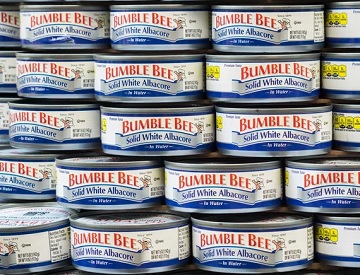
The Untold Truth Of Bumble Bee Tuna
If you’re curious about the history of this thoroughly American product, grab your life vests and Dramamine pills, and set sail with us to discover the untold truth of Bumble Bee Tuna. Have you ever considered the origins of a seemingly always-available product, like Bumble Bee Tuna? Well, if you’ve ever wondered about this tuna industry giant’s history, you may be surprised to learn that when a group of commercial fishing companies joined forces to form the original company, it wasn’t under the name Bumble Bee Tuna, it was known as the Columbia River Packers Association. Founded in Astoria, Oregon in 1899, where its headquarters remained for the next 81 years, the CRPA was a collective formed by A.B. Hammond, who hoped this conglomeration of seven commercial fishing companies would boost the group’s business prowess. >click to read< 13:19
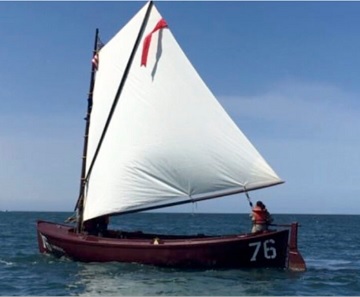
Historic Sailboat begins voyage to Naknek
For more than 60 years, sailboats dominated Bristol Bay’s commercial fishery. Motorized vessels were illegal. Then, in 1951, the federal government finally allowed motorized fishing vessels in Bristol Bay. LaRece Egli, the director of the Bristol Bay Historical Society Museum in Naknek said almost immediately, sailing was made obsolete for the fishery. “I think it’s literally down to 50 or 46 boats or something like that in 1954 and then they just disappear,” she said. By 1952, powerboats outnumbered sailboats 4 to 1. In less than five years, every commercial vessel had a motor. This year, local historians are bringing the sailing tradition back to the bay with a vessel named the Libby, McNeil, Libby, No. 76. >click to read< 10:39
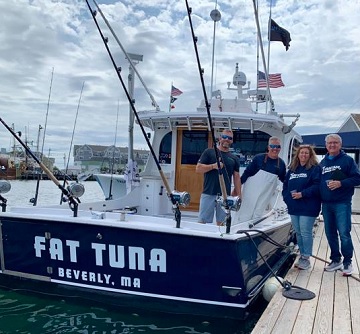
Fans still flock as end of 11th ‘Wicked Tuna’ season nears
“Wicked Tuna,” based in Gloucester, continues to capture the hearts and imaginations of viewers, who continue to flock to America’s oldest seaport to catch a glimpse of one of the show’s boats or its captain and crew. Cathy and Jeff Dyer of Knoxville, Tennessee, are among the recent visitors in search of all things “Wicked Tuna.” “That was one of our missions on our recent trip to New England. Our first impression as we drove through the city was it was much bigger than we expected,” said Cathy Dyer. “When we saw the Fishermen’s Memorial driving into town, we knew we were in the presence of the ‘Wicked Tuna.’ Our visit was very memorable and eventful.” >click to read< 10:06

Retired Commercial Fisherman Joseph C. Whaley Jr. of Narragansett, R.I. has passed away
Joseph C. Whaley, Jr., 86, of Narragansett, passed away at home Friday, July 1, 2022. He was the beloved husband of Marjorie “Midge” Whaley for 65 years. Born in South Kingstown, he was the son of the late Joseph C. Whaley, Sr. and Lily (Sohm) Whaley. He was predeceased by his brothers Howard and Babe and his sisters Virginia and Marise. He is survived by several nieces and nephews. Joe was a lifelong commercial fisherman out of Point Judith. He started with the F/V Virginia Marise, which he bought from his father and ran until he was called into the US Army. When he returned from the Army, he bought F/V E. Carl Rice Jr., which he ran for 35 years, often with his wife Midge as his crew. He later ran the trap boat Amelia Bucolo and, once again, F/V Virginia Marise when it returned to Point Judith 50 years later. >click to read< 08:37
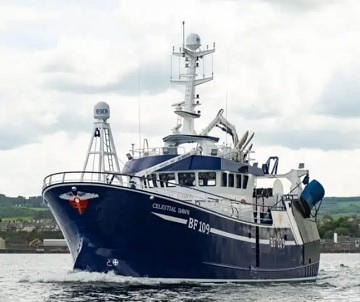
New Concept Design Provides Comfort And Economy
There’s nothing like a returning customer – and this isn’t the first time that George Hepburn and his partners have been to Macduff for a new trawler, as the previous Celestial Dawn BF-109 came from the same yard back in 2000. The new Celestial Dawn, which will be fishing from Peterhead primarily for prawns on North Sea grounds, is the first of three sister vessels being built to the same entirely new design developed by Macduff Ship Design and Macduff Shipyards. The second in the series is under construction already at the yard’s fabrication hall in Buckie, and work on the third is scheduled to begin later this year. photos, >click to read< 07:55
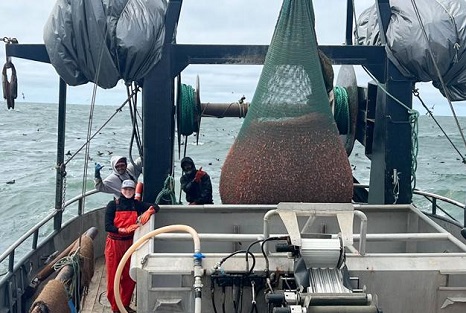
Floating offshore wind generator proposals worry fishing industry
From her home overlooking Yaquina Bay on the Oregon coast, Kelley Retherford can watch as commercial fishing boats arrive at the nearby Port of Newport, delivering their catch to one of several seafood processors that line the waterfront. Saltwater is in her family’s blood, she said. Along with her husband, Mike, and their four adult children, they own and operate four fishing trawlers, harvesting everything from Pacific whitefish and hake to pink shrimp and Dungeness crab. That way of life, however, may be disrupted by a growing interest in offshore wind generators to help achieve ambitious government-mandated zero-carbon energy goals. photos, >click to read< 18:50
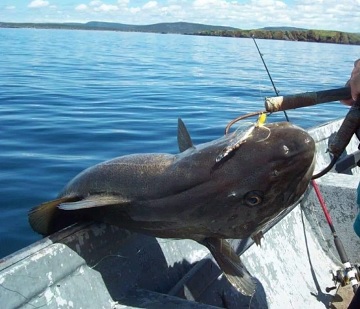
Whitbourne cod fisher hoping for another big one after monster catch on last trip
Hilda Whalen says she finally feels good enough to get back on the water after a battle with cancer and hopes she can replicate her last catch. Whalen caught a 30-kilogram, (66lb.) six-foot cod in Trinity Bay during her last fishing trip in 2018. “At the time I didn’t think it was a big thing. A friend of mine was holding up a cod fish, and I just whacked off the picture to him saying ‘Try to hold this one up with one hand!” “Someone else said, ‘did you ever think of throwing it back?’ … I said no. What Newfie would throw that back in the water after the cod moratorium?” >click to read< 17:45
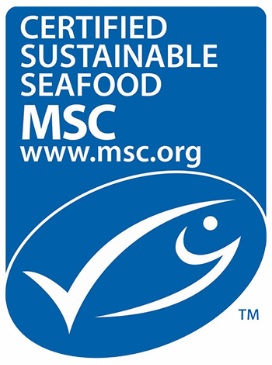
Enviros challenge Maine lobster fishery’s sustainability certification
The Natural Resources Defense Council and other conservation groups are challenging a seafood watchdog’s recertification of the Gulf of Maine lobster fishery as a sustainable resource. The Gulf of Maine’s lobster fishery first received the Maine Stewardship Council’s sustainability certification in 2013, and since then participating lobster businesses have been able to display the council’s blue fish checkmark recognized by eco-minded consumers. Virginia Olsen of the Maine Lobstering Union calls the resource defense council’s effort unfortunate. “Maine fishermen have stepped up to implement whale rules time and time again,”>click to read< 15:21
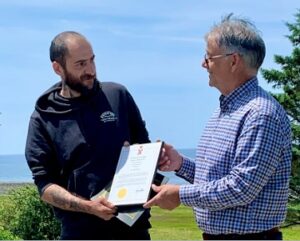
Meteghan NS fisherman reflects on time in Ukraine helping others
When he was on a humanitarian mission in Ukraine to help the people of his home country, Lex Brukovskiy, like countless others, had an app on his phone that alerted him to the air raids. It would go off constantly. It still does. Now back home in southwestern Nova Scotia, the alert went off at 3 a.m. one recent day. Being thousands of miles away doesn’t make the sound any less terrible. It may even make it worse. The Meteghan fisherman says leaving Ukraine was difficult, but he didn’t have a proper visa to stay. After 90 days, he had to come home. >click to read< 10:17
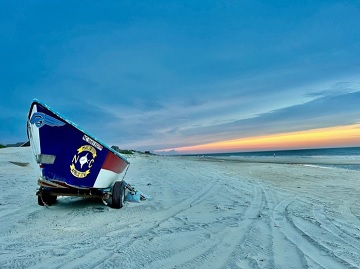
Jake Griffin of Wanchese, NC: I Feel Good About the Future
“Hard to think that I’m one of the young ones in the industry,” commercial fisherman Jake Griffin laughed. “I’m thirty!” Griffin is one the young ones given that the average age of North Carolina watermen is 52 according to a 2017 study of ocean-going fishermen. Born and raised in his homeport of Wanchese, Griffin fishes all over the map, up and down the coast of North Carolina and even out of Alaska and Maine. “I’m shark fishing now,” he said. “I’ve been fishing out of Morehead City. I trailer the boat here and there, chasing what needs to be chased – sharp noses, spinners, hammers.” Griffin began commercial fishing when he was eleven. >click to read< 09:04
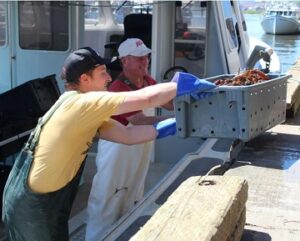
Spring lobster season marked by challenges
An increase in carapace size for canners has meant catches were lower for lobster fishers this season. “In a lot of harbours that had an effect,” said Charlie McGeoghegan, board chair of the Lobster Fishers of PEI Marketing Board. “It will have a positive effect next year, it’s just the short term pain for long term gain kind of thing. Those (lobster) will be around next year, and they’ll be a lot bigger.” Bait was an issue fishers weren’t expecting to deal with this year leading up to the start of the season. Mackerel and herring are what lobster fishers primarily use for bait, many of whom catch the fish themselves, but on March 30, the Department of Fisheries and Oceans Canada announced the closure of those two commercial bait fisheries in Atlantic Canada, as there were concerns dwindling stocks have entered a critical zone. >click to read< 08:17
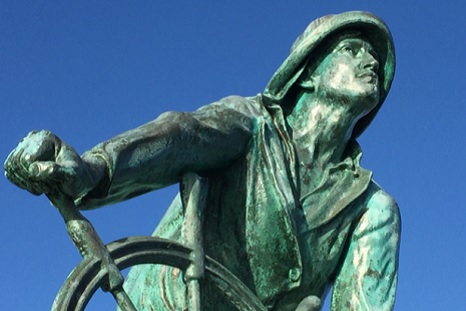
NOAA – A Failed Agency
The Magnuson Act became the law of the land in 1977. Seven years later, the 200-mile limit between Canada and the United States was decided at the world court in the Hague, Netherlands. Both had good intentions, however both failed. Magnuson was supposed to keep fish stocks at a sustainable level and keep maritime communities, like Gloucester prosperous. It made sense. Plenty of fish meant plenty of fishing, processing and a strong waterfront economy. After NOAA Magnuson was signed into law and kicked out the foreign vessels, they contradicted their own intentions of “overfishing” and built up the American fleet by offering government-backed low interest loans. This set off a frenzy of boat building at a time when fish stocks were plentiful. The fleet doubled in size in less than a decade. This offset the gains made from keeping foreign vessels out. Well, it backfired. While we like to think that the foreign fleets raped our fish stocks, it was really NOAA’s’ misguided encouragement and failed policies. “Go get’em boys, it’s all ours now” was their signal to fishermen. >click to continue<, By Sam Parisi. Gloucester, Mass. 18:32
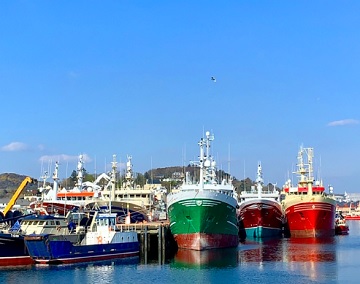
Seafood Sector Faces Shutdown Over Rising Fuel Prices
Ireland’s fishing and fish producer organisations say they are under threat of being wiped out by high energy prices. In turn, jobs and food security is at risk. A joint statement from eight groups is calling on Government to act now to claim available EU funds to compensate the seafood sector and get the situation under control. Teachta Mac Lochlainn said: “I am again appealing to Minister McConalogue to urgently take action on this crisis that is about to close down our fishing industry. The fishing industry in Ireland estimates that fuel needs to be cheaper than 60 cent a litre for Irish trawlers to run profitably. Fuel is now costing €1.30 or more. That is the scale of the crisis. >click to read< 15:14
Athearn Marine Agency Boat of the Week: 72′ Steel Dragger with Permit, Cat 3412
To review specifications, information, and 50 photos’, >click here<, To see all the boats in this series >click here<
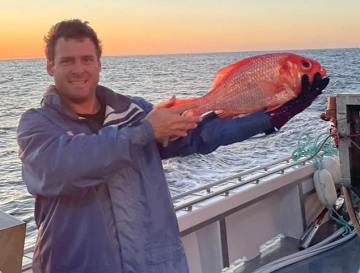
Commercial fishers in Western Australia say fuel costs will push up seafood prices
Petrol prices have surged by more than 25 per cent since the start of the year. The dramatic price increase has led some in the industry to make hard decisions around what to charge for their catch, warning it could lead to less local produce on the plate. Bunbury commercial fisher Brian Simone said his prices were based on a fuel price between $1 to $1.50 litre. However, he said a surge in fuel costs beyond $2 a litre was making it hard to sell his fish. Mr Simone said in his 45 years in the industry he had not seen the price of fuel rise so quickly. “We started off 20 cents a litre back in ’79, and now it’s $2.50 a litre,” he said. >click to read< 11:04
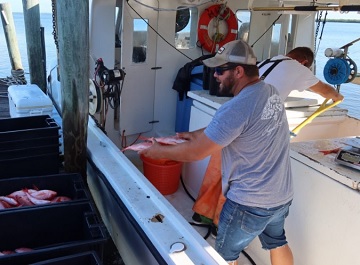
Potential aquaculture sites in Gulf of Mexico concern commercial fishermen
Capt. Casey Streeter’s crew is waist deep in the commercial icebox on its 36-foot Thompson boat. Ice is shoveled overboard, while fish are pulled from the ice into bins, some separated by size and others by species. Fishermen Greg Trammell and Jimmy Bergan just returned from being on the water for seven days. Bins and baskets full of fish filled to the rim as they offload their catch to be sold at Island Seafood Market in Matlacha. It is owned by Streeter and his wife, where they catch and sell their own fish. Streeter is a first-generation fisherman, fishing commercially for 10 years. Streeter’s livelihood relies on the health of marine ecosystems. With the National Oceanic and Atmospheric Administration’s search for aquaculture opportunity areas in the Gulf of Mexico, he fears the lifeline of his career may be at stake. >click to read< 09:35
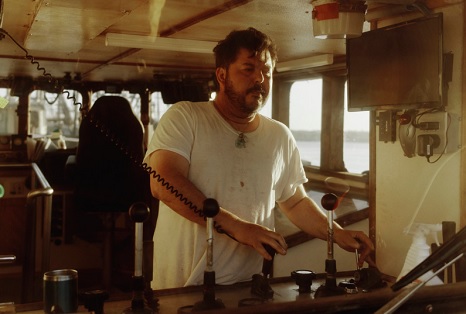
How Foreign Private Equity Hooked New England’s Fishing Industry
Before dawn, Jerry Leeman churned through inky black waters, clutching the wheel of the fishing vessel F/V Harmony. The 85-foot trawler, deep green and speckled with rust, was returning from a grueling fishing trip deep into the Atlantic swells. Leeman and his crew of four had worked 10 consecutive days, 20 hours a day, to haul in more than 50,000 pounds of fish: pollock, haddock and ocean perch, a trio known as groundfish in the industry and as whitefish in the freezer aisle. Leeman and his crew are barely sharing in the bounty. On deck, Leeman held a one-page “settlement 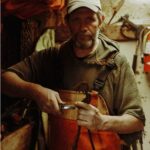 sheet,” the fishing industry’s version of a pay stub. Blue Harvest charges Leeman and his crew for fuel, gear, leasing of fishing rights, and maintenance on the company-owned vessel. Across six trips in the past 14 months, Leeman netted about 14 cents a pound, and the crew, about 7 cents each — a small fraction of the $2.28 per pound that a species like haddock typically fetches at auction. >Photos, click to read< 08:01
sheet,” the fishing industry’s version of a pay stub. Blue Harvest charges Leeman and his crew for fuel, gear, leasing of fishing rights, and maintenance on the company-owned vessel. Across six trips in the past 14 months, Leeman netted about 14 cents a pound, and the crew, about 7 cents each — a small fraction of the $2.28 per pound that a species like haddock typically fetches at auction. >Photos, click to read< 08:01
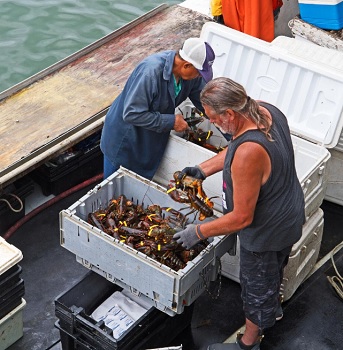
Massachusetts lobstermen back in water facing new challenges
Lobstermen in Massachusetts are back in the water and facing a variety of challenges. Fishermen were grounded due to right whale protections. The battle now is a combination of high fuel costs and lower prices at fisheries, raising the cost of fishing operations. “If the fuel price doesn’t get lower and the price of lobster doesn’t get into a stable – I’m not even going to say high price but a stable price – things are going to be tough,” >click to read< 21:10
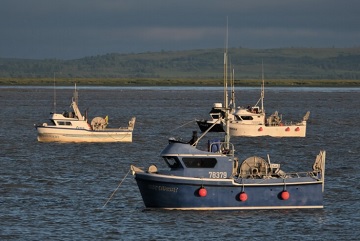
Bristol Bay Fisheries Report: July 4, 2022
Messages to the fleet – Happy July 4thto Captain Mike “Fishhead” Fourtner and the hard-working crew on the newly christened “Twin Tuition” on he first season earning her way on the bay! Every challenged faced in making this season’s opener in time showed how fisherman and the industry rallied to help. Have a great season, be safe and watch that line. Take baby pictures! From the crew of the Deborah Ann – Charleston SC. To Lewis and Joanna on Coffee Point – call home. Happy 4th of July. Audio reports, lots of updates. >click to read< 20:01
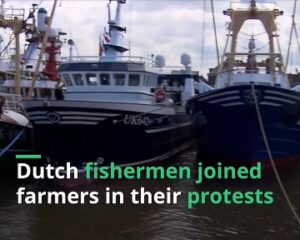
Dutch farmers and fishermen block roads and port to protest new emissions rules
At the heart of the protest are targets introduced last month to halve harmful nitrogen compounds by 2030. It is the latest attempt to tackle a problem that has plagued the country for years. Dutch fishermen have joined farmers in protesting nitrogen emission targets. In Harlingen, they blocked the port with trawlers meaning ferries to the islands of Terschelling and Vlieland could not leave for hours. Shrimp fishermen in particular fear that they will run into problems due to the government’s emission targets. As of next year, they will need to apply for new fishing permits. Without the necessary adjustments to their trawlers, the permits could be withheld. It would mean they would no longer be allowed to do their jobs., Video, >click to read/watch< 16:51 An aside. Human sewage can introduce disease-causing pathogens and nitrogen into the ocean, potentially impacting human health as well as coastal ecosystems and the communities that depend on them for such purposes as fishing. Interesting facts, and graphics. >click to read<
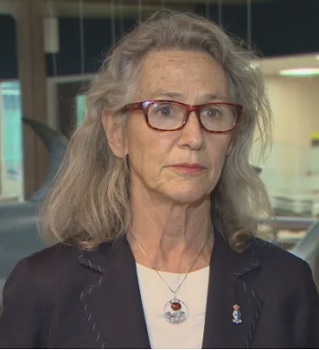
NLGIDC concerned with the recent announcement regarding Northern Gulf Cod
Similar to many NL fishing industry associations and the Province of NL, The Newfoundland and Labrador Groundfish Industry Development Council (NLGIDC) is also concerned with federal Fisheries Minister Joyce Murry’s decision to place a one-year moratorium in the Northern Gulf Cod stock. “This was a small fishery, however the total closure will have negative impacts on harvesters and processors as well as coastal communities on the west coast of Newfoundland and Labrador and the Lower North Shore of Quebec,” says Jim Baird, the Chair Person of the NLGIDC. >click to continue< 15:29
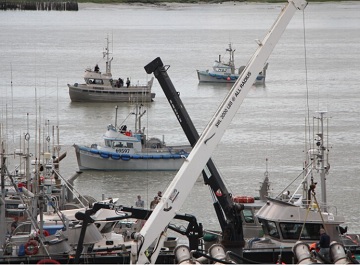
Silver Bay Seafoods agrees to pay fine for illegal dumping in the Naknek River
Sitka-based Silver Bay Seafoods earlier this month agreed to pay a fine of $467,469 for illegal dumping at its Naknek River facility in Bristol Bay. The company has also agreed to address violations of its state permit to discharge pollutants. The state Department of Environmental Conservation said in a press release that Silver Bay “repeatedly discharged significantly more fish waste into the Naknek River than permitted” in 2017 and 2020. State inspectors also found numerous violations at the facility during a scheduled inspection last year, like discharging bloody water. >click to read< 12:11
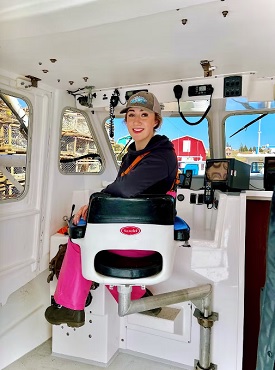
Low prices, low catch wraps up P.E.I. spring lobster season
With global demand and lobster prices reaching record highs in Nova Scotia in the weeks leading up to P.E.I.’s spring season – around $17.50-18.50 a pound – many Island fishers were looking forward to a promising start to their season. “Typically, it drops a bit before we start because there are more boats in the water at that time, so we didn’t expect anywhere near that price,” said Charlie McGeoghegan, chair of the Lobster Marketing Board. “However, we did expect to start off where we left off last spring, which was in the $11-12 range.” That combined with the price of fuel being double what it was and bait being up 30 per cent, we thought maybe once we get a few weeks in, the price will get better. That’s what it did last year.” Instead, the prices dropped again by another $1.50 a pound, said McGeoghegan. Photos,>click to read<– 09:14
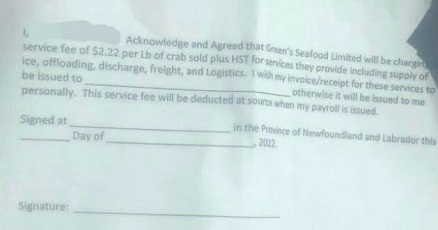
Panel-system of fish pricing has collapsed: SEA-NL
Seaward Enterprises Association of Newfoundland and Labrador says the panel system of fish pricing in this province has collapsed, with the panel either setting prices that will not result in a fishery, or processors ignoring prices and unilaterally setting their own. SEA-NL is calling on the provincial government to immediately step in and restore confidence in fish pricing. “The panel system has become a joke not only here in Newfoundland and Labrador, but with fishermen right around Eastern Canada laughing at us,” says Ryan Cleary, SEA-NL’s executive director. In mid-May the provincial government-appointed price-setting panel set the latest price for snow crab paid to the inshore fleet at $6.15/lb. Processors refused to buy crab for that price,,, >click to read the rest< 22:31
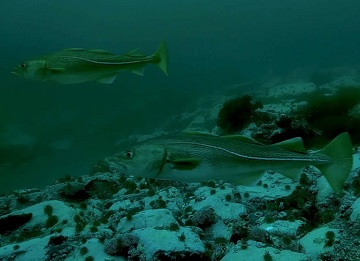
1-year commercial cod moratorium ordered for northern Gulf of St. Lawrence
Two days after the 30th anniversary of the 1992 cod moratorium that decimated the Newfoundland and Labrador economy, Ottawa has closed commercial cod fishing in the northern Gulf of St. Lawrence. On Monday, Fisheries and Oceans Minister Joyce Murray announced a one-year ban on directed commercial fishing in the northern Gulf of St. Lawrence in order to give young fish time to reach maturity. >click to read<
Rebuilding the Cod Fishery in Northern Gulf of St. Lawrence – “This is a tough decision; I recognize this commercial closure will pose economic challenges for many harvesters and comes at a hard time for people in Newfoundland and Labrador and Quebec. >click to read<
FFAW-Unifor Disappointed with Minister Decision to Close Gulf Cod – Fish, Food and Allied Workers Union is deeply disappointed with Minister Joyce Murray’s decision to close the cod fishery in the Gulf of St. Lawrence. The small cod fishery is economically and culturally significant to the region, and science has shown that natural mortality is the key unaddressed factor in the stock’s ability to grow. >click to read< 12:11
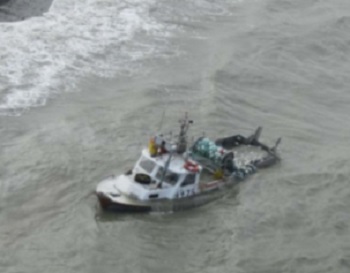
A troubled business
The size of the letters in the handwriting on the wall for the Alaska commercial salmon industry just keep getting bigger. Only days after the Bristol Bay sockeye harvest began with processors offering $1 per pound for some of Alaska’s best salmon, Atlantic Sapphire announced it had raised another $100 million-plus in capital to expand its land-based salmon farm in Homestead, Fla. Fish Farmer magazine reported that planned increases in a wealth tax imposed on private fish farmers in Norway helped push considerable Norwegian investment toward the company, but it is becoming increasingly clear that taxes or not there is strong investor belief in the idea that land-based, recirculating aquaculture systems are the salmon production method of the future despite the startup problems some of those farms have faced. >click to read< 10:55
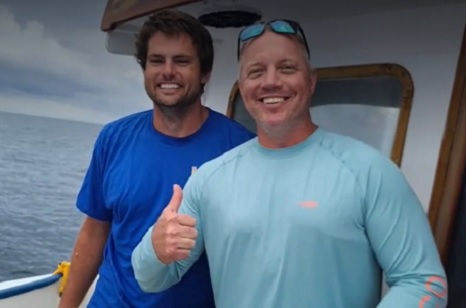
Charter fishing crew reacts to saving overboard commercial fisherman’s life
A team of junior hockey players from Nashville and their dads went on a charter fishing tour with “New Beginning” early Sunday morning, when they spotted something strange. “I saw a gentleman waving,” passenger Ryan VanBuskirk said. “I said, ‘That’s a human out there!’ The United States Coast Guard said a commercial fishing boat captain fell overboard around midnight— with no life jacket. A crew member on the captain’s boat, the F/V Fiona Leone, notified the USCG around 4 a.m. Sunday that he fell overboard while the boat was on autopilot. The charter fishing group said it’s a miracle they found the man around 7 a.m. on Sunday. Video, >click to watch/read< 08:36






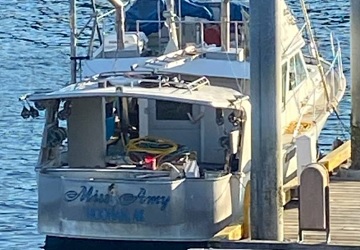

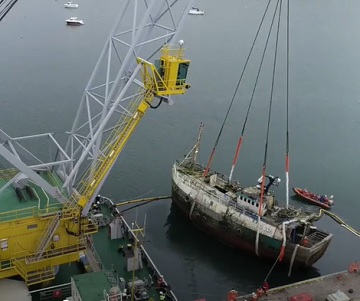



























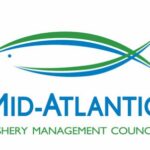
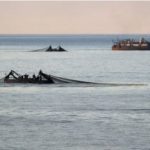

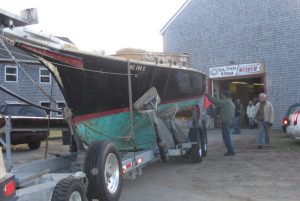

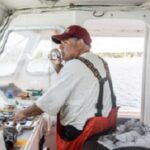

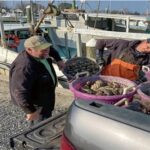
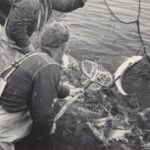
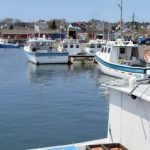
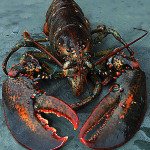
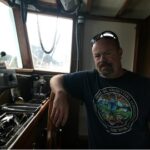
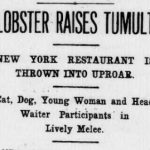




A note from Nils Stolpe: Comment on Proposed Hudson Canyon National Marine Sanctuary
I suspect, particularly considering the new and newly active Supreme Court, that there is going to be a huge push to fulfill the aspirations of the various “anti” groups to implement (impose?) their wish lists ASAP. I suspect as well that the current administration is worried about the appearance of its carte blanche granting of seemingly “do anything you want in the oceans” policy vis a vis wind power and is throwing this out as an indication that it really does care about the oceans. The effectiveness of so-called Marine Sanctuaries is still questionable but that’s no guarantee that you won’t have one in your bit of the ocean if the idea proliferates. Please take the time to go to Notice of Intent to Conduct Scoping and to Prepare a Draft Environmental Impact Statement for the Proposed Hudson Canyon National Marine Sanctuary and comment on this issue. Please keep in mind the fact that your waters and your fishery might be next. Nils 13:24
Share this post